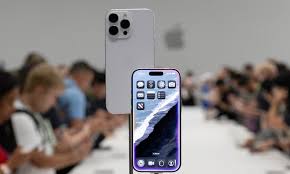The newly launched iPhone 16 has made headlines in Nigeria, where its price is equivalent to 18 months of the minimum wage. The starting price of $799 (approximately N1.26 million) for the iPhone 16 is out of reach for many Nigerians, who earn a minimum wage of N70,000 ($44.29) per month.

In comparison, the same phone would cost just over three months of minimum wage in South Africa and a little over five months in Egypt. The significant price difference is attributed to Nigeria’s economic challenges, including a struggling naira that has seen a dramatic decline against the dollar.
As a result, many Nigerians are turning to refurbished or second-hand phones, leading to a 9.5% growth in the used smartphone market in 2023. Chinese brands have dominated the local smartphone market, overshadowing iPhones, which account for a small percentage of sales.
The high price of the iPhone 16 has sparked concerns about the affordability of luxury goods in Nigeria. While the minimum wage increase in July 2024 was a welcome move, it has not made a significant dent in the purchasing power of average workers.
The situation highlights the need for more affordable options in the Nigerian smartphone market. As the demand for smartphones continues to grow, it is essential to provide alternatives that cater to the needs and budgets of Nigerian consumers.
The iPhone 16 price in Nigeria is a stark reminder of the country’s economic challenges. While the phone’s features and quality are undeniable, its price is a barrier for many Nigerians. As the market continues to evolve, it is crucial to provide affordable options that meet the needs of all consumers.



